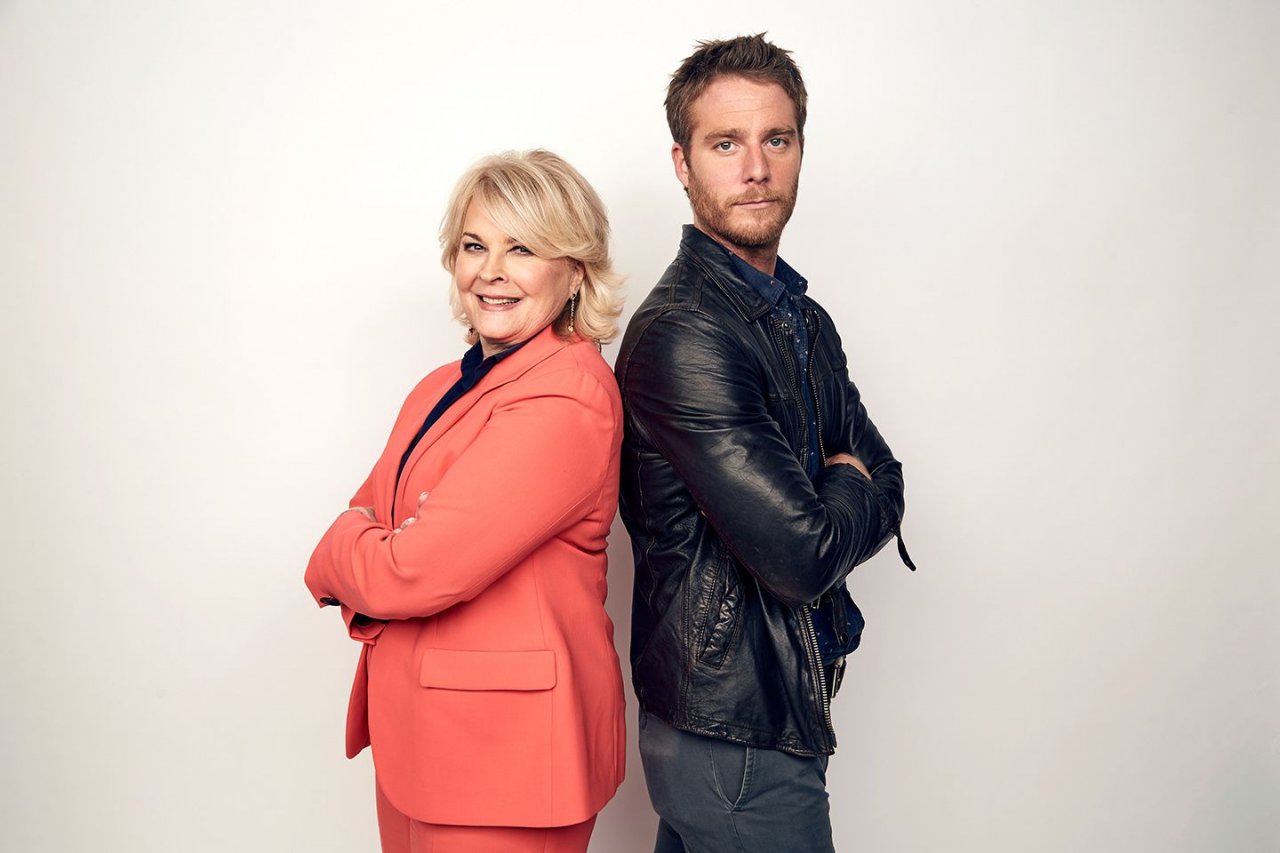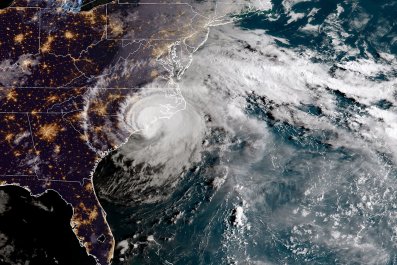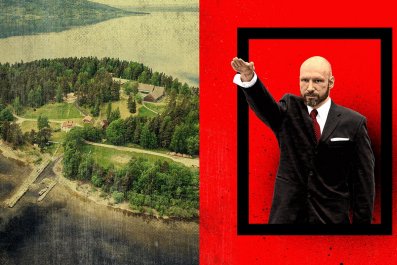In early 2017, the head of Warner Bros. studio, Peter Roth, approached Diane English about reviving Murphy Brown —the '90s political comedy that turned star Candice Bergen into America's most beloved fake news anchor. Roth thought the election of President Donald Trump offered the perfect timing for an update. But English said no.
She was working on another TV pilot at the time, but her hesitation had to do with legacy. "We were an iconic show," she tells Newsweek. "We had lots of Emmy awards [18, to be exact]. You don't want to revisit something 20 years later for a poor imitation."
Given Murphy Brown is returning to CBS for 13 episodes starting September 27, what changed? The 70-year-old creator says she relented when Warner Bros. offered to pay her for a test script, just to see how she and Bergen felt about it. "A pretty smart idea on their part," says English. Once she finally started writing, in November 2017, "it just sort of poured out of me." Meanwhile, "headlines were getting worse and worse," and fans on social media were asking, 'What would Murphy say about this?' "It was the idea of being relevant that really changed my mind."
At a time when the president of the United States is questioning free speech, "our show was one of the few with a real reason to return," she adds. "Twenty years ago, Walter Cronkite was the most trusted man in America. Now the press is vilified because the president keeps repeating 'fake news.'" One episode of the returning show, English adds, is devoted to the difficulties of "getting to the truth in the White House briefing room."
Murphy Brown 's original run—10 seasons, from 1988 to 1998—showcased an ambitious, outspoken and defiantly unmarried reporter in her 40s who regularly namechecked real politicians and sparked a national conversation about single motherhood. A 1989 Newsweek cover (see page 4) declared her "a revolutionary new force in prime-time television." In that story, Bergen called Murphy "the tomboy who practiced all winter to get on the all-boys teams."
The new show has Brown, played by the now 72-year-old Bergen, anchoring a morning cable show, Murphy in the Morning. Six of the original writers have returned, as has most of the original cast, including Faith Ford, Joe Regalbuto, Grant Shaud and Charles Kimbrough (fan favorite Robert Pastorelli died in 2004). And, yes, Brown's notable inability to keep an assistant continues, as will the pointed swipes at current affairs. Even two decades later, many of the original show's jokes hold up (sadly in some cases). "Women in this country legally have a choice," Brown quipped in 1991. "At least I think they still do. I haven't checked the paper today."
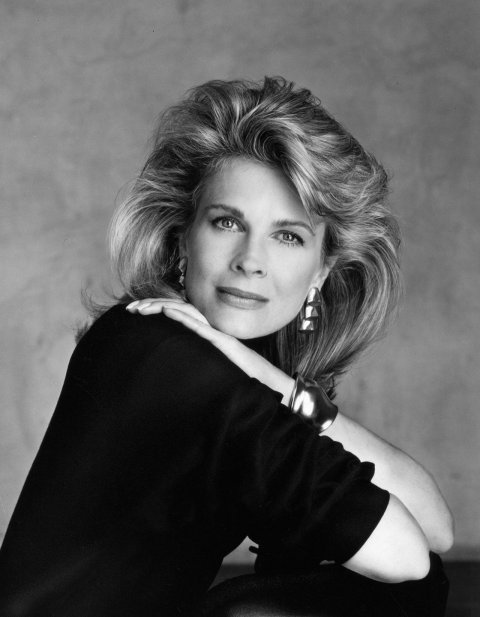
The series—which began during the presidency of Ronald Reagan and endured through the administrations of George H. W. Bush and Bill Clinton—effortlessly blurred fiction and reality, sometimes even predicting events, and that won't change. The times, if anything, are even more fertile for satire (really, you can't make this stuff up). A lot has changed—there was no internet, social media or 24/7 cable news during much of the show's first run—but much hasn't. Consider that #MeToo, and its attendant marches and renewed demands for female equality, began just last year, a full 19 after Brown was fighting for the same things.
The original show's defining moment came in 1992, when Vice President Dan Quayle somehow confused Brown with a real person, accusing her of "mocking the importance of fathers" by choosing single motherhood. In the revival, her now-grown son Avery (played by Jake McDorman) is a liberal journalist, too, though at a Fox News–style network. (Naturally, says English, "They're competitive with each other.") The first episode will begin on November 8, 2016, the day of the presidential election, but English says the show will quickly move to the present day, including an episode about leaks and one featuring a "Steve Bannon–type character" who may or may not get airtime on Brown's new show.
The writers have yet to fully develop later episodes (shot three weeks in advance of airtime) so as to stay as current as possible. "We'll have an episode about the midterms that will air four days before the elections," says English.
In 1993, English used her character to respond to Quayle; Brown blasted the vice president for blaming the country's problems on her rather than "an administration that's been in power for 12 years." And let's just say that English and her writers are prepared for a similar showdown with Trump. "We'd be stupid to think he won't react. We kinda hope he does," she says with a laugh.
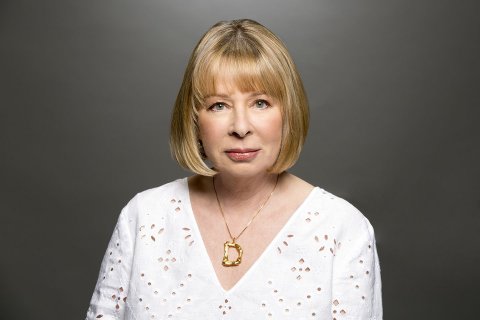
Murphy Brown is a perfect fit for CBS, which jumped at the opportunity to revive it, particularly after the success of Will & Grace (which gave NBC its biggest premiere in six years ) and Roseanne 's 2018 premiere (which blew past ABC records and returns as The Conners following Roseanne Barr's firing for sending an offensive tweet ). CBS targets older viewers—the median age in 2017 was 61—and that's unlikely to change, even with the ouster of the man who orchestrated the network's winning ratings strategy, CEO Les Moonves, who resigned on September 9 following sexual harassment allegations and an investigation by the board of directions (a move fully supported by English).
Young people don't watch TV live, but even if they did—and despite the potential GIF-ability of Brown—the character doesn't have the millennial appeal of Jerry Seinfeld or, for that matter, any of the characters on Friends. The reason? Murphy Brown was never acquired by a streaming platform; the Motown songs that were a hallmark of the show were simply too expensive to repurchase. "I would've loved if CBS had done a compilation recap special, but it didn't get off the ground," says English. Hopefully, she adds, the new season will convince someone to pick up the tab for Aretha Franklin, whose music was helped form the backbone of the original show.
English was a chief funder of Hillary for Humanity, an independent expenditure committee that supported Hillary Clinton's presidential campaign. Rumor has it that Clinton will make a cameo in the first episode of Murphy Brown. Fans of the show would certainly relish the sharp-tongued anchor's reaction to that historic defeat—one that will likely mirror English's own disappointment in 2016.
"Over the years, Candice and I both sort of became Murphy," she says. Part of the joy of reviving the show has to do with the opportunity it offers for political satire, but it has as much to do with being reunited with old friends. "That first table read—when the cast came to set and saw Murphy's townhouse and Phil's bar re-created exactly as it had been 30 years ago? I would have to say it was a high point of my career, if not my life."


